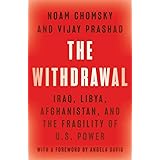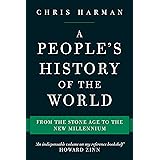
Enjoy fast, free delivery, exclusive deals, and award-winning movies & TV shows with Prime
Try Prime
and start saving today with fast, free delivery
Amazon Prime includes:
Fast, FREE Delivery is available to Prime members. To join, select "Try Amazon Prime and start saving today with Fast, FREE Delivery" below the Add to Cart button.
Amazon Prime members enjoy:- Cardmembers earn 5% Back at Amazon.com with a Prime Credit Card.
- Unlimited Free Two-Day Delivery
- Streaming of thousands of movies and TV shows with limited ads on Prime Video.
- A Kindle book to borrow for free each month - with no due dates
- Listen to over 2 million songs and hundreds of playlists
- Unlimited photo storage with anywhere access
Important: Your credit card will NOT be charged when you start your free trial or if you cancel during the trial period. If you're happy with Amazon Prime, do nothing. At the end of the free trial, your membership will automatically upgrade to a monthly membership.
Buy new:
$19.95$19.95
Ships from: Amazon.com Sold by: Amazon.com
Save with Used - Good
$8.84$8.84
Ships from: Amazon Sold by: ZBK Wholesale

Download the free Kindle app and start reading Kindle books instantly on your smartphone, tablet, or computer - no Kindle device required.
Read instantly on your browser with Kindle for Web.
Using your mobile phone camera - scan the code below and download the Kindle app.

OK
 Audible sample Sample
Audible sample Sample 


The Darker Nations: A People's History of the Third World (New Press People's History) Paperback – Illustrated, April 29, 2008
Purchase options and add-ons
Spanning every continent of the global South, Vijay Prashad's fascinating narrative takes us from the birth of postcolonial nations after World War II to the downfall and corruption of nationalist regimes. A breakthrough book of cutting-edge scholarship, it includes vivid portraits of Third World giants like India's Nehru, Egypt's Nasser, and Indonesia's Sukarno―as well as scores of extraordinary but now-forgotten intellectuals, artists, and freedom fighters. The Darker Nations restores to memory the vibrant though flawed idea of the Third World, whose demise, Prashad ultimately argues, has produced a much impoverished international political arena.
- Print length364 pages
- LanguageEnglish
- PublisherThe New Press
- Publication dateApril 29, 2008
- Dimensions6.2 x 1 x 9.2 inches
- ISBN-101595583424
- ISBN-13978-1595583420
The Amazon Book Review
Book recommendations, author interviews, editors' picks, and more. Read it now.
Frequently bought together

Similar items that may deliver to you quickly
Editorial Reviews
Review
Praise for The Darker Nations:
“Darker nations, brighter nations: this book helps to uncover the shining worlds hidden under official history and dominant media.”
—Eduardo Galeano
“Vijay Prashad is one of the great radical intellectuals of our times, and this book is essential reading for militants everywhere.”
—Irvin Jim, general secretary of the National Union of Metalworkers of South Africa (NUMSA)
“The Darker Nations is the first comprehensive political history of the Third World as a concept and as a project. It is essential background for rethinking this history and constructing a viable political program today.”
—Immanuel Wallerstein
“A global romp . . . filled with revealing anecdotes . . . [and] a handy alternative history of our planet in the post-World War II era.”
—Amit Pal, The Progressive
“An original and challenging work. . . . Prashad surveys the history of the Third World with passionate engagement.”
—Shashi Tharoor, author of Nehru: The Invention of India
About the Author
Vijay Prashad is director of Tricontinental: Institute for Social Research, editor of LeftWord Books, and the chief correspondent for Globetrotter. He is the author of The Darker Nations: A People’s History of the Third World, Uncle Swami: South Asians in America Today, and co-author (with Noam Chomsky) of The Withdrawal (all published by The New Press), as well as Washington Bullets. The Darker Nations was chosen as a Best Nonfiction Book of the Year by the Asian American Writers’ Workshop and won the Muzaffar Ahmad Book Prize. He lives in Santiago, Chile.
Product details
- Publisher : The New Press; Reprint edition (April 29, 2008)
- Language : English
- Paperback : 364 pages
- ISBN-10 : 1595583424
- ISBN-13 : 978-1595583420
- Item Weight : 1.19 pounds
- Dimensions : 6.2 x 1 x 9.2 inches
- Best Sellers Rank: #712,996 in Books (See Top 100 in Books)
- #62 in South Korean History
- #214 in Slavery & Emancipation History
- #579 in Globalization & Politics
- Customer Reviews:
About the author

Vijay Prashad is Director of Tricontinental: Institute for Social Research, Chief Editor of LeftWord Books, and Chief Correspondent for Globetrotter (Independent Media Institute).
Prashad is the author of thirty books, including most recently Washington Bullets (LeftWord, Monthly Review), which has an introduction by Evo Morales Ayma. Roger Waters of Pink Floyd says of this book, "Like his hero Eduardo Galeano, Vijay Prashad makes the telling of the truth lovable; not an easy trick to pull off, he does it effortlessly."
His Darker Nations: A People’s History of the Third World (New Press, 2007) was chosen by the Asian American Writers’ Workshop as the best nonfiction book of 2008, and it won the Muzaffar Ahmad Book Award for 2009. It is now available in French, Italian, Japanese, Spanish, Swedish, with editions in India and Pakistan and translations in Arabic, Mandarin and Turkish in process. Kamal Mitra Chenoy, professor at Jawaharlal Nehru University, wrote in Economic and Political Weekly, “This is a comprehensive, informative and rewarding book to read, and documents a critical part of our international politics and culture which is much misrepresented nowadays.” Former Indian Foreign Minister K. Natwar Singh, writing in Tehelka, notes, “The book invites comparison to Edward Said’s Orientalism. Vijay Prashad’s passionate commitment, his intellectual brio, his literary style, are all immensely impressive.” El Pais said of the Spanish edition, “Las naciones oscuras es un libro excepcionalmente documentado. Era obligado, dada la ambición del proyecto. Su documentación es tan buena que brilla.”
The sequel to Darker Nations - The Poorer Nations: A Possible History of the Global South - was published in 2012 by LeftWord Books and Verso Books. Former UN Secretary General Boutros Boutros-Ghali called the book in his preface “a contribution to the intellectual-cum-political emancipation of developing countries and their empowerment through greater self-reliance on their own intellectual and analytical resources.”
Customer reviews
Customer Reviews, including Product Star Ratings help customers to learn more about the product and decide whether it is the right product for them.
To calculate the overall star rating and percentage breakdown by star, we don’t use a simple average. Instead, our system considers things like how recent a review is and if the reviewer bought the item on Amazon. It also analyzed reviews to verify trustworthiness.
Learn more how customers reviews work on Amazon-
Top reviews
Top reviews from the United States
There was a problem filtering reviews right now. Please try again later.
ChangeItOrDrownIt
B 36 Ears
In any case, the book is basically divided into three parts. The first section, 'Quest', considers some themes (economics, nationalism, gender, etc) through the optic of major conferences. The second, 'pitfalls', highlights places that epitomize themes like military coups and socialism from above. The third section, 'Assassinations' describes the demise of the third world as a subject as a result of neoliberalism, the IMF, the rise of East Asia, and religious fundamentalism. In all sections, Prashad tends to move between the focus of the chapter and historical geographical events that are far afield and occur before and after the moment in question. The effect can be a little vertiginous. Certainly he deserves credit for attempting such an expansive work, and his knowledge about the time period appears to be vast.
However, I found his organization a little too tidy, and his political perspective restricted by his focus on state leaders. Particularly since he regards the UN as something of an instrument for third world advancement (an interesting contrast with Perry Anderson, who claims its just a front for the US), why does he disregard the international conferences held under its auspices in the last fifteen years regarding the environment, women, and racism? Although attended by people from countries in the North as well as the South, at these forums it is probably fair to say that Southern perspectives tended to prevail and throw the North on the defensive. And why is not a word breathed about the World Social Forum? Is it because he regards NGOs (also almost completely absent from his book) as instruments of Northern domination, or because he regards social movements as insignificant compared to states? The absence of any discussion of these issues seems almost sectarian, as does his fairly crude analysis of religion (focused on Saudi-backed Wahhabi Islam--the Iranian revolution is practically unmentioned). Finally, he doesn't seem to have noticed, as have some other writers, that a number of third world states have begun to recover from neoliberalism and seem to be gradually reasserting themselves.
Top reviews from other countries
A particularly useful read for those who still believe in 'foreign aid' and 'international development' and other such liberal notions.
The roots of the Third World project can be traced back to radical intellectuals and anti-colonial activists who operated in both the colonies as well as the imperial homelands. It was the common struggle against European imperialism that brought these men together and led them to formulate shared goals and interests. The project came of age when the colonial empires were brought down by popular resistance and political changes, and the newly independent states sought to carve a new path for themselves, one that avoided both American and Soviet blocs.
It is to his credit that Professor Prashad demonstrates that the Third World project - as exemplified by the Non-Aligned Movement (NAM) was about more than just neutrality in the Cold War. It entailed a particular set of political principles - namely national sovereignty, non-violence, global social justice and international cooperation. From Bandung to Bolivia, these ideas had wide resonance, even among the established elites in the Third World. However, putting these principles into practice was another matter, although the Third World project did have its successes, (notably in accelerating decolonization and influencing Soviet foreign policy) as the first part of the book reveals.
The demise of the Third World project had internal and external causes: the former are dealt with in the second part of the book, the latter in the third. The main internal cause of the project's collapse was the failure to reform society: as a result, the ruling classes in the Third World, once they attained a certain degree of power and wealth, were able to jettison the developmental state in favour of neoliberalism, (which corresponded with a shift in their ideological sympathies from nationalism to globalism). The key external cause was the inability of the Third World to break its economic dependence on the developed countries, which, in the wake of the debt crises, made it increasingly difficulty for it to propose or promote an independent political agenda. Of course, the author also considers many of the subsidiary causes for the Third World's failures.
The overall layout of the book is roughly chronological, but the individual chapters combine thematic and geographical approaches. Thus, each chapter considers one particular part of the Third World, (be it Havana, Arusha or Singapore), provides its historical background, and then employs it to demonstrate a theme or an event common to many developing countries. This rather unconventional style of writing, which builds from the local and the particular, to the global and the general, provides the reader with a deeper as well as a wider understanding of the history and politics of the Third World.
Though the Third World project had a number of triumphs, it ultimately ended in tragedy, as old ideas perished at the hands of new realities. One such reality was the replacement of a political nationalism based on solidarity and sympathy, with a cultural nationalism founded on hatred and xenophobia. Professor Prashad describes how and why this shift took place - and how masses once gripped by the hopeful idealism of secular and socialist movements fell prey to the paranoid politics of religious fundamentalists. As we watch society after society succumb to this madness, 'The Darker Nations' enables us to realize just how much the failure of the Third World project has cost us.















